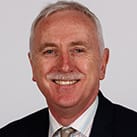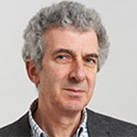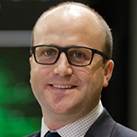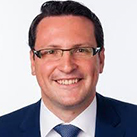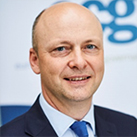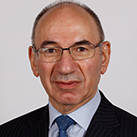Divest or Engage? Strategies for Responsible Investing

28 Oct 2019
09:15 -17:30
GMT
Registration for this event is closed.

Downing College
Regent Street
Cambridge
CB2 1DQ
United Kingdom
Post event summary
The Centre for Endowment Asset Management (CEAM) successfully organised and hosted the Divest or Engage? Strategies for Responsible Investing conference with the collaboration of the European Corporate Governance Institute (ECGI), on 28 October 2019.
The audience, who were comprised of investment practitioners, finance academics and students, were engaged in the conversation throughout the conference. Interactive polling during the conference regarding questions on environmental, social, and governance (ESG) issues has yielded real-time interesting and productive insights, in conjunction with a case study, on the question of optimal response of divestment versus engagement regarding responsible investing.
The conference focused on 3 major questions:
- How should asset owners and investment managers incorporate ESG criteria into their strategy?
- Is active management superior to passive management, because active fund managers can select companies with best practices and avoid companies with poor ESG records?
- Do index funds engage sufficiently, and what impact do they have on engaged firms?

Conference partner

Programme
Overview
Four specialised sessions took stage in the conference.
- The first session opened up with a case study of climate-change activism at the University of Cambridge, addressing how a dilemma stemming from an increasing awareness on ESG issues had impacted the future investment strategies of the University, followed by an academic research paper analysing the effect ESG rating disagreement on stock returns, particularly in conjunction with the legal origins of the rating providers’ headquarters.
- The second session investigated the influence of active institutional owners on firms. It delved into a quasi-natural experiment conducted regarding how a sudden change in governance preferences of Norway’s sovereign wealth fund (NBIM) could induce firms’ governance practices changes aligning with NBIM’s expectations. This session later zoomed in on the latest survey of industry professionals’ views on sector exclusions.
- The third session included an academic research paper highlighting the case evidence of a strong correlation between asset managers’ engagement and trading decisions, which lends support for voice influencing exit. The session continued with another academic research paper providing the first detailed evidence of the nature and impact of co-ordinated, collaborative, and international efforts by a prominent international network of activist shareholders to influence investee companies on ESG issues.
- The final session involved a panel discussion with four industry representatives exchanging their views on the future prospects of the responses of the finance industry, especially investment management, to the widespread ESG concerns.
Agenda
28 October 2019
08:50 – 09:15
Registration
09:15 – 09:20
Welcome
Marco Becht, Professor of Finance, Solvay Brussels School for Economics and Management, Université libre de Bruxelles
09:20 – 11:00
Session 1: Setting the scene
Chaired by: Marco Becht
- Link to paper
- Presenters: David Chambers CEAM Academic Director & Reader in Finance, Cambridge Judge Business School
Elroy Dimson, CEAM Chairman, Cambridge Judge Business School - Discussant: Carole Ferguson, Head of Investor Research, CDP
- Time: 09:20-10:10
A dilemma faced by an increasing number of investors is whether to boycott environmentally damaging businesses or whether to enter into a dialogue with them. This predicament now has its epicentre in Cambridge, England, where the University faces great pressure from students and staff to respond to the threat of climate change. Having already received two reports on its approach to responsible investment, the University has appointed a new chief investment officer (CIO). The University’s Chief Financial Officer (CFO) and the CIO needs to consider the question of whether to divest or to engage. What would be the financial effects of each choice, and what would be the outcome in terms of environmental impact? This session aims to set the scene for this event. It briefly describes the background and the research behind the debate and, unlike other papers, we ask you to consider the arguments and take a position rather than proposing solutions ourselves.
- Link to paper
- Presenter: Rajna Gibson, Professor of Finance at the University of Geneva
- Discussant: Oğuzhan Karakaş, Senior Lecturer in Finance, Cambridge Judge Business School
- Time: 10:10-11:00
Using a sample of S&P 500 firms between 2013 and 2017, we examine the stock return implications of ESG rating disagreement. We start by documenting that the average correlation between ESG ratings from six prominent rating providers is about 0.45. Surprisingly, the average correlation is lowest for the governance, and highest for the environmental dimension. We also find that disagreement is higher for larger, less profitable, and firms without a credit rating. We then classify ESG rating providers by the legal origin of the countries in which they are headquartered. Given the more stakeholder-centric model of the firm that is typically found in civil law countries, we hypothesize that disagreement about social ratings among rating providers with a civil law origin is more relevant and should strongly influence stock returns. In a similar spirit, the shareholder primacy of common law countries suggests that disagreement about governance issues among ratings providers with a common law origin should also impact returns.
11:00 – 11:20
Break
11:20 – 13:00
Session 2: Thought leadership in responsible investing
Chaired by: David Chambers
- Link to paper
- Presenter: Vicente Cuñat, Associate Professor, London School of Economics
- Discussant: Ola Mestad, Professor of Law, University of Oslo
- Time: 11:20-12:10
In November 2012, Norway’s sovereign wealth fund (NBIM) unexpectedly announced that it would foster better corporate governance practices in its portfolio firms by articulating specific governance expectations. We use this sudden change in governance preferences as a natural experiment to understand shareholder influence among active ownership investors. We first document how the fund re-balanced its portfolio to achieve this governance objective believed to be aligned with investment objectives. We then show how firms for which the fund is an important investor and also firms that are very important to the fund reacted by aligning their corporate governance following NBIM expectations. Marginal investment changes and governance changes become more correlated in the new equilibrium. We also examine the heterogeneous response of firms to institutional pressures. This paper advances existing research on active owners’ influence on firms, and particularly on firm governance practices.
- Link to paper
- Presenter: Vaska Atta-Darkua, PhD student in Finance, Cambridge Judge Business School
- Discussant: Marco Becht
- Time: 12:10-13:00
We survey industry professionals’ views on sector exclusions. Respondents consider exclusions most useful for attracting funds from ethically concerned investors, followed by conforming to moral beliefs. Exclusions are least popular for risk management purposes. Return estimates of selected sin and non-sin sectors are unconnected to exclusion preferences. However, exclusion opponents form sector risk estimates with higher resemblance to historic performances than exclusion proponents. Furthermore, opposition to exclusions does not seem to stem from an expectation that sin stocks have superior performance. Opponents of exclusions are more likely to believe global warming is currently harming people than exclusion proponents.
13:00 – 14:00
Lunch
14:00 – 15:40
Session 3: Voice and exit
Chaired By: Bang Dang Nguyen, University Lecturer in Finance, Cambridge Judge Business School
- Link to paper
- Presenter: Julian Franks, Professor of Finance, London Business School
- Discussant: Michael Viehs, Associate Director, ESG Integration, Hermes Investment Management
- Time: 14:00-14:50
How do active managers engage with their portfolio firms? And what role does monitoring and engagement play in their trading decisions? We use proprietary data from one of the world’s largest active asset managers with a commitment to stewardship to answer these questions. Our sample, based on nine years of data, provides a detailed picture of how fund managers’ decisions are influenced by monitoring target firms, especially through interaction at private meetings, that we can observe. We find that engagement is correlated with trading decisions, where dissatisfaction with portfolio firms leads to sales of stakes. Dissatisfaction is manifested in voting decisions against management of target firms, internal sector analyst recommendations, and exit. Monitoring and engagement by the active asset manager appears to produce private information, which in turn contributes to alpha. Our results provide strong support for voice influencing exit.
- Link to paper
- Presenter: Elroy Dimson
- Discussant: Jocelyn Brown, Senior Investment Manager in the Sustainable Ownership team, RPMI Railpen
- Time: 14:50-15:40
We study the nature of and outcomes from coordinated engagements by a prominent international network of shareholder activists cooperating to influence firms on environmental and social issues. We find a two-tier engagement strategy, combining lead active investors with supporting investors, is effective in successfully achieving the stated engagement goals and subsequently improving target performance. An activist is more likely to lead the collaborative dialogue when its stake in the target firm is higher and when the target is domestic. Success rates are elevated when the lead investors are domestic, supporting investors are international, and the investor coalition is influential.
15:40 – 16:00
Break
16:00 – 17:00
Session 4: Panel discussion
Chaired by: Richard Robinson Investment Director, Paul Hamlyn Foundation
Panelists:
- George Dallas, Policy Director, International Corporate Governance Network (ICGN)
- Jane Firth, Head of Responsible Investment, Border to Coast Pension Partnership
- Aled Jones, Head of Sustainable Investment, EMEA, FTSE Russell
- Lesley Sherratt, Trustee, Medical Research Foundation
17:00
Concluding remarks from David Chambers followed by networking reception
Speakers
Vaska Atta-Darkua
PhD student in Finance, Cambridge Judge Business School
Vaska is a PhD student in Finance at Cambridge Judge Business School, University of Cambridge. She conducts research on responsible investing topics; currently focusing on negative portfolio screenings. Vaska holds a BSc in International Economics from the University of Essex and an MPhil in Finance from Cambridge Judge Business School. Prior to returning to full time education for her MPhil and PhD degrees, Vaska spent four years as an econometrics consultant in London. Her first paper examines the impact on firms when a large institutional investor publicly excludes them from its portfolio for (perceived) unethical behaviour. Her second paper investigates the impact of sector screening for a well-diversified long-term investor. Her third paper surveys industry professionals on their sector exclusions views. Her work has been presented at the European Commission Conference on Promoting Sustainable Finance and the Inaugural Irish Academy of Finance Conference.
Jocelyn Brown
Senior Investment Manager in the Sustainable Ownership team, RPMI Railpen
Jocelyn is a Senior Investment Manager in the Sustainable Ownership team at RPMI Railpen. Previously, she was an Executive Director at Institutional Shareholder Services and a policy advisor at the Financial Reporting Council. She studied at the University of Cambridge, Imperial College London and London Business School. She serves on the Corporate Governance Committee of the ICAEW and the Corporate Governance Advisory Council of the US Council of Institutional Investors.
David Chambers
Invesco Professor of Finance, Cambridge Judge Business School and Academic Co-Director of the Centre for Endowment Asset Management
David’s research interests span asset management and financial history; he has published in leading academic journals in finance and in economic history. He is the Academic Co-Director for the Centre for Endowment Asset Management at Cambridge Judge Business School. David sits on the editorial board of the Financial Analysts Journal. He is a member of a number of investment committees in both Cambridge and London and is a Fellow of Clare College, Cambridge. David received his PhD in 2008 from the London School of Economics. Prior to returning to full-time education in 2001, David worked for 20 years in investment banking in asset management, mergers and acquisitions and venture capital in Europe, Japan and the United States.
George Dallas
Policy Director, International Corporate Governance Network (ICGN)
George has served as Policy Director at the International Corporate Governance Network since 2014, where he co-ordinates ICGN’s governance policies and committees, and plays an active role in ICGN’s policy development and regulatory outreach on behalf of members whose assets under management exceed $34 trillion. He is responsible for oversight of ICGN guidance statements, Viewpoint reports, public comment letters and broader thought leadership to promote ongoing governance reform and best practice by both companies and investors. George is also a Visiting Lecturer and a member of the Steering Committee of the Centre for Corporate Governance Research at Cass Business School, University of London, where he teaches MSc and executive education courses in corporate governance. Previously, George served as Director of Corporate Governance at F&C Investments (now BMO Global Asset Management) in London (£100 billion in assets under management), where he led F&C’s global policies relating to corporate governance, including proxy voting and engagement matters. George holds a BA degree, with distinction, from Stanford University and an MBA from the Haas School of the University of California at Berkeley.
Carole Ferguson
Head of Investment Research at CDP
Carole Ferguson heads up investor research at CDP an NGO which has been leading transparency from corporates on climate change through disclosure. CDP has 650 institutional members and signatories who represent large global institutional investors. Prior to joining CDP Carole has extensive experience in the financial sector working for Society Generale Asset Management as a fund manager for 10 years and for banks such as JP Morgan and Robert Fleming. Carole holds an MBA from London Business School and MSc in Economics and Policy of Energy and the Environment from UCL.
Julian Franks
Professor of Finance, London Business School
Julian’s research focuses on bankruptcy and financial distress, corporate ownership and control, cost of capital and regulation. He is an associate editor of five finance journals. He served as a member of the DTI-Treasury committee for reviewing the UK’s insolvency code in 2001 and was a member of one of the Company Law Review committees on corporate governance. He has been an advisor to Ofcom and its predecessor Oftel for more than 15 years. He also advises other UK regulatory authorities including the Office of Rail Regulation and the Office of Water Services (OFWAT). He was recently a member of the Breedon Committee, investigating new non-bank sources of finance for small to medium-sized companies. He has been a Visiting Professor at the University of California at both Berkeley and Los Angeles.
Aled Jones
Head of Sustainable Investment (Europe), FTSE Russell
Aled joined FTSE Russell in November 2017 as Head of Sustainable Investment, Europe. Aled joined from Mercer’s Investment Consulting business where he was a Principal in the Global Responsible Investment team. At Mercer, Aled worked closely with large European asset owners and investment firms supporting them in all areas of RI strategy development and implementation, as well as ESG research and portfolio and manager analytics.
Prior to this, Aled managed the ESG integration activities of one of the UK’s largest public-sector pension schemes, the London Pensions Fund Authority. Aled’s RI industry experience spans more than 17 years during which time he has also worked in ESG analysis and research, as well as corporate voting and engagement for active portfolios on behalf of institutional and retail clients. Aled holds an MSc in Environmental Science from Lund University in Sweden and is a Member of the Chartered Institute for Securities & Investment.
Ola Mestad
Professor of Law, University of Oslo
Ola is the director of the Scandinavian Institute of maritime Law at the University of Oslo. He has been the chair of the Council on Ethics for the Norwegian Government Pension Fund Global and the chair of the Norwegian National Contact Point for the OECD Guidelines for Multinational Enterprises. Currently, he chairs the Committee to review the Guidelines for Observation and Exclusion of Companies from the Government Pension Fund Global, which will submit its report in June 2020. He is also an ad hoc judge at the EFTA Court, Luxembourg. He has been in private practice and published extensively i.e. on oil and gas law, contract law, international law and constitutional law. During academic year 2016-17, he was a research fellow the Lauterpacht Centre for International Law, University of Cambridge.
Richard Robinson
Investment Director, Paul Hamlyn Foundation
Richard Robinson is the Investment Director of Paul Hamlyn Foundation, a $1bn endowment fund in Kings Cross which was established by the publisher Paul Hamlyn in 1987. It helps young people, principally in the UK, achieve their potential and operates in the areas of arts, education and social justice. He is also chair of EFFIO, the Brussels based collective for thirty of the largest European not for profit foundations. He began his investment career in 1982 and has a masters degree from Oxford University.
Michael Viehs
Head of ESG Integration – Public Markets, Hermes Investment Management
Dr Michael Viehs joined Hermes in 2015, initially as part of Hermes EOS, and transferred to the Responsibility Office in 2018. He is responsible for the integration of ESG information across the investment strategies of all public market equity and credit funds. He also leads the firm’s ESG research activities, proving the value-add from incorporating ESG information into investment decisions. Michael is also responsible for corporate engagements at the executive and board level on ESG and strategic issues with German DAX corporations. Before his appointment at Hermes, Michael was Research Director at the University of Oxford’s Smith School of Enterprise and the Environment. His work on responsible investment, corporate governance, and stewardship has been published in Corporate Governance: An International Review and Annals of Social Responsibility. Michael holds a BSc, MSc and PhD from Maastricht University, School of Business and Economics.
Marco Becht
Professor of Finance, Solvay Brussels School for Economics and Management, Université libre de Bruxelles
Marco is a Professor of Finance and the Goldschmidt Professor of Corporate Governance at the Solvay Brussels School for Economics and Management at Université libre de Bruxelles where he teaches master courses on corporate governance, corporate restructuring and law, finance and economics. Becht is also a Founder Member, a Fellow and the Executive Director of the European Corporate Governance Institute, an international non-profit scientific association. In 2003 and 2012, he was Visiting Professor and Fellow at the Saïd Business School, University of Oxford, in 2008 Max Schmidheiny Visiting Professor for Entrepreneurship and Risk at the University of St. Gallen, in 2011 Visiting Professor at Stanford Law School and a Visiting Fellow at the Rock Center for Corporate Governance and in 2013 a Visiting Fellow at Columbia Law School.
Sarah Carter
Executive Director, Centre for Endowment Asset Management
Sarah is a co-founder of the Centre for Endowment Asset Management and she forms part of the management team leading the Centre’s development as a platform for research and education into long-horizon investing. Previously, Sarah set up and managed Cambridge Judge Business School’s post-experience Master of Finance degree, which has consistently been ranked by the Financial Times as one of the top two programmes globally. Prior to working in business education, Sarah worked in the international not-for-profit sector, including with Plan International and the United Nations Association, UK.
Vicente Cuñat
Associate Professor, London School of Economics
Vicente’s research interests span different areas in finance including; corporate finance, applied theory, applied econometrics, industrial organization and labour and personnel economics. He holds a PhD in Economics from the London School of Economics. He finished postdoctoral research (2012) at Stanford University. Vicente participated in the 2104 AXA Research Program on Risk Management and Regulation of Financial Institutions, and in 2005 he contributed to Ministerio de Educación DGES Instituciones y Activos Financieros en Información Asimétrica.
Elroy Dimson
Research Director (Finance), Cambridge Judge Business School, University of Cambridge,
Elroy chairs the Centre for Endowment Asset Management at Cambridge Judge Business School. His research focuses on long-horizon investing, active ownership and case studies on investing, and his publications are on investment management, endowment strategy, responsible investing and financial market history. Elroy chairs the Advisory and Policy Boards of FTSE Russell, and serves on the Supervisory Council of the Geneva Finance Research Institute; until 2016 he chaired the Strategy Council of the Norwegian Government Pension Fund Global. Elroy is a Fellow or Honorary Fellow of CFA UK, the Institute of Actuaries, the Royal Historical Society, the Risk Institute at Ohio State University, and Gonville and Caius College, Cambridge. He is also Emeritus Professor of Finance at London Business School where he did his PhD.
Jane Firth
Head of Responsible Investment, Border to Coast Pension Partnership
Jane is the Head of Responsible Investment at Border to Coast and is working towards implementing the Responsible Investment Strategy across internally and externally managed assets. Prior to joining Border to Coast, Jane worked as a portfolio manager for the South Yorkshire Pension Fund; an internally managed fund prior to pooling. During her time at South Yorkshire Jane managed European and UK equity portfolios. Additionally, she also oversaw the Fund’s voting activities, was responsible for developing responsible investment policy and stewardship practice and engaged with companies and stakeholders on ESG issues. Jane sat on the Local Authority Pension Fund Forum Executive for five years. She has a first-class degree in International Studies from the Open University.
Rajna Gibson
Deputy Director, Geneva Finance Research Institute
Rajna is a Professor of Finance at the University of Geneva. She has been a Board Member at Swiss Re since 2000 and she is a former Member of the Swiss Federal Banking Commission (1997-2004). Her research interests are in experimental finance, asset pricing, alternative investments and corporate governance. She currently teaches the courses “Advanced Asset Pricing” and “Hedge Funds” in the Master in Wealth Management. She was Managing Director of the Geneva Finance Research Institute between 2009-17, and she was Head of Research at the Swiss Finance Institute between 2007-14 and a Director of the National Centre of Competence in Research FINRISK between 2001-09. Rajna holds a PhD in Economic and Social Sciences (Specialization in Finance) from the University of Geneva.
Oğuzhan Karakaş
Associate Professor in Finance, Cambridge Judge Business School
Academic Co-Director, Centre for Endowment Asset Management
Oğuzhan’s research focuses on corporate governance, ownership and control, private equity, dynamic investment strategies, and corporate social responsibility. His research has been published in the highest ranked financial journals and his paper titled Active Ownership (with Elroy Dimson and Xi Li) is the recipient of prestigious awards, including the 2016 FIR-PRI Finance and Sustainability European Research Award. Prior to joining Cambridge Judge Business School, Oğuzhan was an Assistant Professor of Finance at the Carroll School of Management at Boston College. He has served as a part-time consultant to a hedge fund on establishing trading strategies. His PhD is from London Business School.
Bang Dang Nguyen
Associate Professor in Finance
Director of the MPhil in Finance Programme, Cambridge Judge Business School
Bang’s research interests are corporate finance; empirical finance; corporate governance. He is a visiting scholar at the Wharton School, University of Pennsylvania, Philadelphia, US since 2015. Before joining Cambridge Judge Business School in September 2010, Bang was an assistant professor of finance at the Chinese University of Hong Kong. He graduated from HEC Paris in July 2006 with a PhD degree in finance. From January 2003 to April 2004, Bang was a visiting scholar in the Finance Department at Stern School of Business, New York University.
Lesley Sherratt
Trustee, Medical Research Foundation
Lesley was appointed as a trustee of the Medical Research Foundation in August 2018. Lesley is a Director of Temple Bar Investment Trust and lectures in global business ethics at King’s College, London. She has 25 years’ investment experience running global portfolios with an especial emphasis on the financial sector. At King’s College, she lectures on the Masters course in Global Ethics and Human Values on issues involving citizenship, corporate citizenship and global business ethics. She published Can Microfinance Work? in 2016 and her current research interests include financial inclusion and responsible investment.
Lesley was previously a Director of Save & Prosper Group, Fleming Flagship, Fleming Investment Management (where she ran the global portfolios team), US Smaller Companies Investment Trust and Ark Asset Management, a hedge fund company that she founded in 1999. Her BA was in Politics, Philosophy and Economics from New College, Oxford, and she holds an MA and PhD from King’s College, London.
Papers presented
To Divest or to Engage? A Case Study of Climate-Change Activism
David Chambers, Elroy Dimson, Ellen Quigley
ESG Rating Disagreement and Stock Returns
Rajna Gibson, Philipp Krueger Nadine Riand, Peter Steffen Schmidt
Co-ordinated Engagements
Elroy Dimson Oğuzhan Karakaş and Xi Li
Firms Reaction to Changes in the Governance Preferences of Active Institutional Owners
Ruth V. Aguilera, Vicente J. Bermejo, Javier Capapé, Vicente Cuñat
Survey on Sector Exclusions
Vaska Atta-Darkua, Elroy Dimson
Corporate Governance through Voice and Exit
Marco Becht, Julian R. Franks, Hannes F. Wagner




